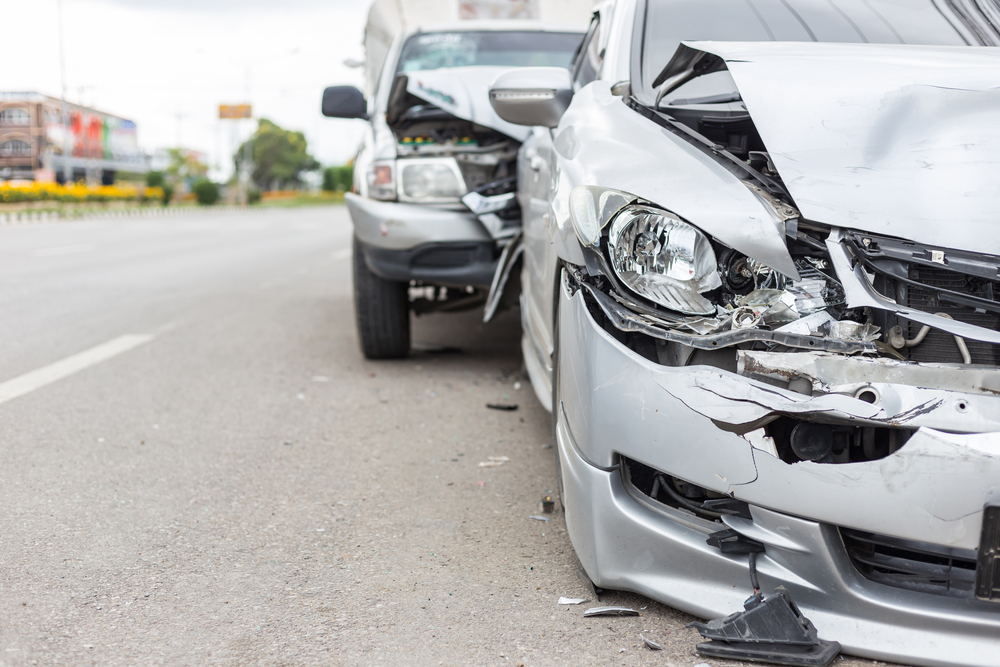After a crash, accident victims may have many questions, such as, “Can someone sue after a car accident is settled?” In most cases, victims can’t sue after they sign a settlement agreement. That said, there are very rare exceptions. One exception is if someone forces them to sign the deal or fraud is involved. Another exception might be if the person wants to sue a manufacturer for a car defect that caused the crash. The language in the release of liability form dictates what someone’s post-settlement options are. Because the settlement is usually final, victims need to have solid legal advice before signing this critical document.
At Kalikhman & Rayz, LLC, we provide targeted and practical advice to those injured in car accidents in Pennsylvania. A car accident attorney at our office can work with victims to help them learn about their legal rights. As part of this, our lawyers can review the settlement agreement the victim has signed or is thinking about signing. The attorney can use this document and the applicable law to determine if filing a suit is possible.
Is a Release of Liability Always Enforceable in a Car Accident Case?
A release of liability form limits someone’s ability to hold others liable for a car accident claim. Insurance companies usually ask policyholders to sign this document as part of the settlement process. In most cases, release of liability forms are enforceable, but there are a few exceptions to this rule.
What Is a Release of Liability Form?
Release of liability forms are documents that limit someone’s right to sue. They can prevent someone from suing specific people, such as the known at-fault drivers. Other times, they can restrict someone’s right to sue a broad category of people, such as anyone who might share fault for the crash. The liability form may leave the door open for the victim to sue specific people for specific reasons. For example, if a car manufacturer caused the crash somehow, the release may allow the victim to file a product liability case. Or the release may let the victim sue someone for noneconomic damages but not for things like lost wages.
When Is a Release Unenforceable?
A release might be unenforceable if someone coerced the victim into signing it. For example, the insurance company may have exaggerated specific details to persuade someone to sign the form. Or someone may have committed fraud, resulting in the victim signing the document. Finally, if there is an issue with how the release is written, then it may be unenforceable. For example, if it’s missing key details (like any signatures at all), it may not be legally binding.
Can Someone Sue After a Car Accident Is Settled?
In many cases, the settlement marks the end of the lawsuit. But it depends on the language of the release of liability form. The release of liability form usually limits the victim’s ability to file a lawsuit because of that car accident. Many insurance companies require people to sign this form as part of the settlement. From the insurance company’s perspective, doing this ensures the settlement finalizes the potential payouts.
If the release of liability says the victim can’t sue someone because of the claim, the victim may be stuck with whatever they agreed to in the settlement. But if the document leaves the door open for lawsuits against, say, a manufacturer for a defective car part, the victim may still be able to take legal action after signing the settlement. Likewise, if someone can prove the agreement isn’t legally enforceable, they may be able to back out of it and regain their right to sue.
Because settlements are usually the last say in a lawsuit, it’s vital that you understand the terms before you agree to them. A Philadelphia car accident lawyer can review settlement agreements and proposals and let you know whether the document is in your best interest. If you have already signed a release, the lawyer can determine if there’s a way for you to get out of it.
When Does PA Law Allow Someone to File a Lawsuit After Signing a Settlement?
Settlement agreements usually restrict someone’s right to file a lawsuit. But Pennsylvania law may allow someone to get out of a settlement if there is something legally wrong with it. Typically, this would mean showing that coercion, fraud, or similar behavior happened. For example, if the insurance company threatened the policyholder to get them to sign the agreement, this may be grounds for dismissing it under Pennsylvania law. Threatening behavior might include threats that someone’s rights will be taken away if they don’t sign something by a specific date. If this occurs, victims may a court to overturn the settlement, returning to the victims their rights to sue.
What Happens if You Discover a Potential Defendant After You Settle the Car Accident Case?
If you settle the claim and then discover another potential defendant, you may be able to file a lawsuit. But it depends on the wording of the release of liability and settlement you signed. If these documents took away your right to file a lawsuit against someone responsible for the crash, you may be unable to do so. This might be true even if you don’t figure out who that person is until much later on. For this reason, it’s very important that you talk to a personal injury attorney before you sign anything related to the crash.
What Are Accident Victims’ Post-Settlement Options?
Your post-settlement options depend on the circumstances and the wording of the release of liability form. If the release doesn’t let you sue someone after settling the case, you may be unable to take further action. But you may be able to get around this if you can prove the release is unenforceable because of things like fraud. If this is the case, you may be able to file a lawsuit to ask a judge to dismiss it. Finally, if the release of liability lets you sue others (such as a car manufacturer) whose actions caused the crash, you may be able to take legal action.
Kalikhman & Rayz, LLC Helps People Understand Their Rights to Sue or Settle Under PA Laws
Car accidents can be disorienting and frustrating, setting into motion a whirlwind of phone calls, doctor’s visits, and legal forms. One of those critical forms is the settlement agreement, which often usually includes a release of liability. If you are thinking about signing a settlement agreement or have already done so, an attorney can help you figure out what your options are.
Kalikhman & Rayz, LLC champions the rights of those harmed in car accidents throughout Pennsylvania. Our dedicated team can explain the legal jargon in your settlement so you know what you’re signing before doing so. If you already signed the agreement, we can review it and see if you can still sue someone. Lawrence Kalikhman is a fierce attorney who has advocated for those in Pennsylvania for nearly 20 years. He has helped many victims of auto wrecks restore their lives by getting the compensation they need to move forward.
If you are a car accident victim and have questions about your settlement or your post-settlement rights, contact us to schedule a no-obligation consultation. Our offices are conveniently located in Huntingdon Valley, Allentown, and Philadelphia.









